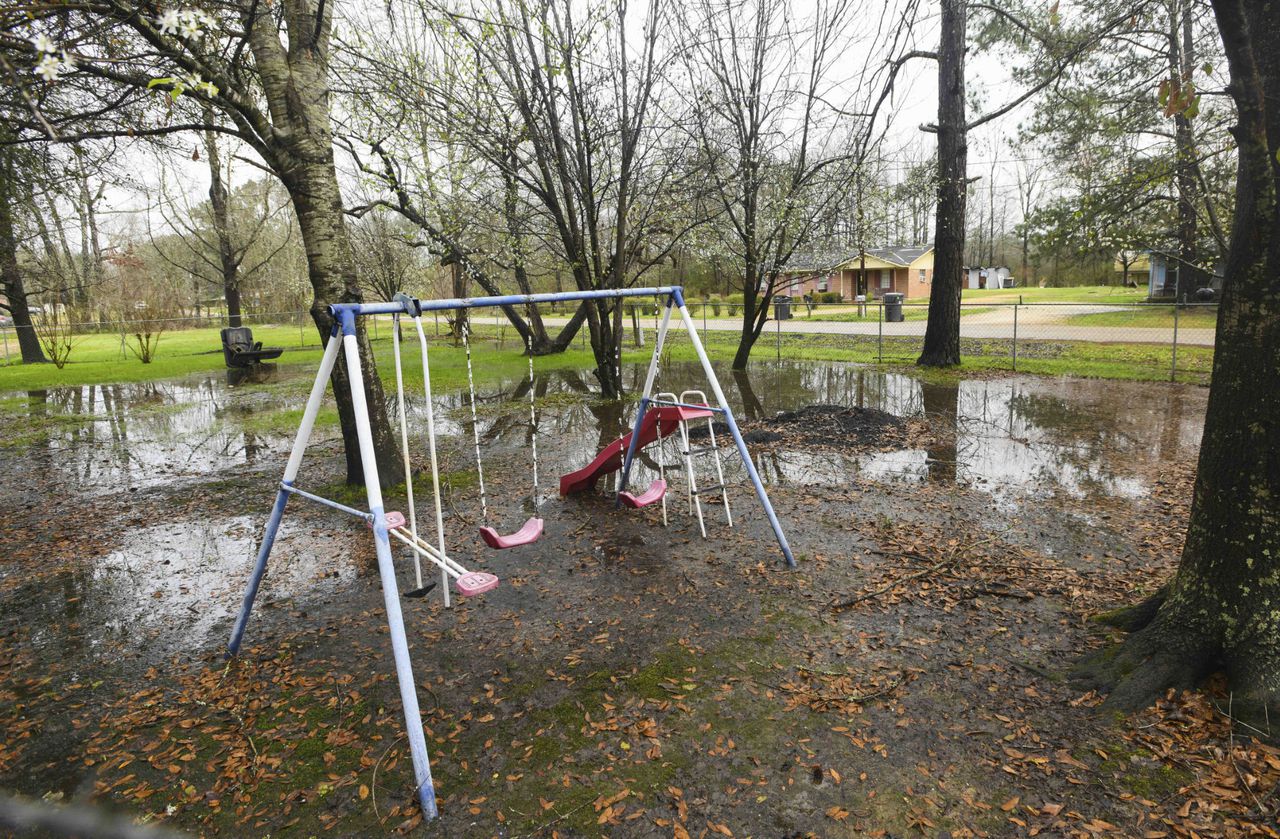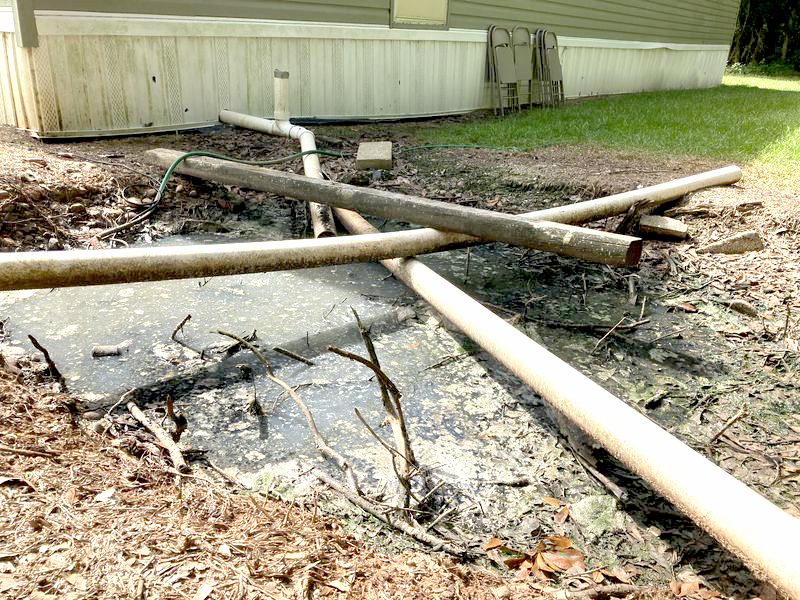A civil rights complaint filed today alleges that the state of Alabama discriminates against communities in the Black Belt when handing out government funding for infrastructure projects such as sewage treatment systems.
The complaint says the state awards grants in a way that makes it more difficult for Black residents to receive funding.
“This country’s neglect of wastewater infrastructure in majority Black communities — both urban and rural — is resulting in a hygienic hell for far too many people. A hell that climate change is only making worse,” said Catherine Coleman Flowers, founder of The Center for Rural Enterprise and Environmental Justice, in a news release.
Flowers’ organization and the Natural Resources Defense Council filed the complaint with the U.S. Environmental Protection Agency against the state of Alabama and the Alabama Department of Environmental Management, alleging a violation of the Civil Rights Act of 1964, which prohibits entities that receive federal funding from discriminating on the basis of race, color, sex, religion or national origin. The Southern Poverty Law Center is representing the groups.
ADEM said it has not been notified of the complaint, but that statements in the press release from NRDC are “factually incorrect and baseless.”
In a statement to AL.com, ADEM said it actually spent more infrastructure funds in the Black Belt per capita than in other areas of the state, pointing to a recent announcement of $10 million project in Lowndes County and other grants it has funded.
“In 2022, 34% ($157 million) of the $463 million of drinking water and wastewater funding awarded by ADEM went to Black Belt counties where 10.6% of Alabama’s population resides,” the department said. “Disadvantaged Black Belt areas received funding at three times the rate of other areas.”
The Black Belt includes a swath of some of the poorest counties in the nation and stretches across the length of southern Alabama from the Mississippi state line to the border with Georgia.
The recent federal American Rescue Plan Act and the Bipartisan Infrastructure Law will provide more than $1 billion for ADEM to distribute for drinking water and sewer projects in the next few years. But it won’t be enough to meet all needs, as ADEM says it has received more than $3 billion in project proposals.
Sewage treatment in Alabama’s Black Belt has been a problem for decades. Many areas are too spread out for large, central sewer lines and the heavy clay soil doesn’t allow water to seep into the ground easily, causing many septic tank systems to fail. Specialized septic systems designed to work in these clay soils can cost $10,000 or more. As a result, some residents have resorted to using “straight-pipe” discharges to pump sewage out into the woods, sometimes only a few feet from their homes.

The complaint alleges that funding decisions are discriminatory in the following ways:
- ADEM created a point system to rank project proposals and decide which projects to fund. But ADEM’s ranking system makes it impossible for people who rely on onsite sanitation to earn enough points to secure funding.
- ADEM does not consider financial need in its ranking system.
- For the past four years, ADEM has unreasonably limited the amount of loan forgiveness it offers people with financial need.
- The department has conducted inadequate outreach to disadvantaged communities regarding the availability of state revolving fund money.
- ADEM only allows public bodies to apply for state revolving fund support. This rules out individuals, homeowners’ associations, community groups and nonprofit organizations who would otherwise be eligible.
- ADEM has failed to offer alternative financing options for those unable to issue bonds.
Manish Bapna, the president and CEO of NRDC, said the lack of funding is “forcing far too many people across the country to endure unhealthy and unjust living conditions.”
“With millions of dollars coming to Alabama through the bipartisan infrastructure law—those funds should be going to these communities that have been left behind for too long, to finally give them the basic public health infrastructure they deserve,” Bapna said in the news release.
Flowers said that ADEM’s policies represent another way that Black Alabamians face discrimination.
“As we commemorate the anniversary of Bloody Sunday in Selma, I reflect on the activists in my home county of Lowndes who fought for their voting and civil rights,” Flowers said. “Nearly 60 years later we’re still fighting for dignity, environmental justice and the basic human right of sanitation access. Corrective action resulting from this complaint will positively impact all Alabama residents who rely on onsite septic.”











